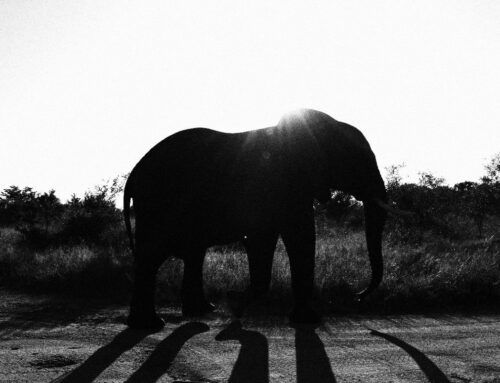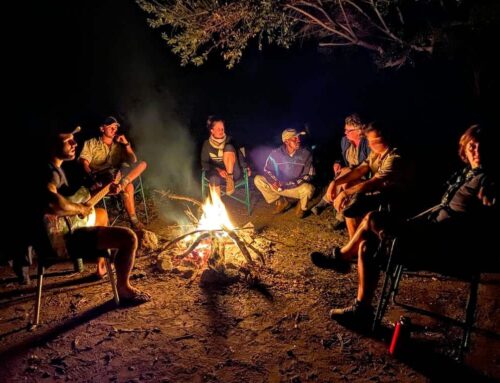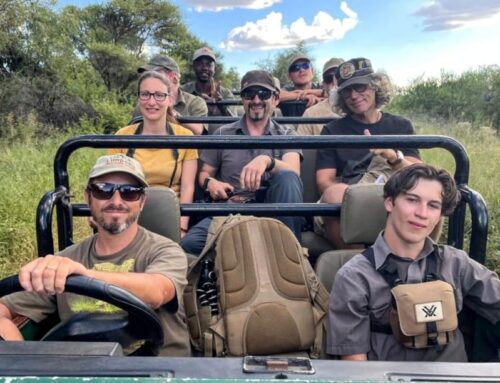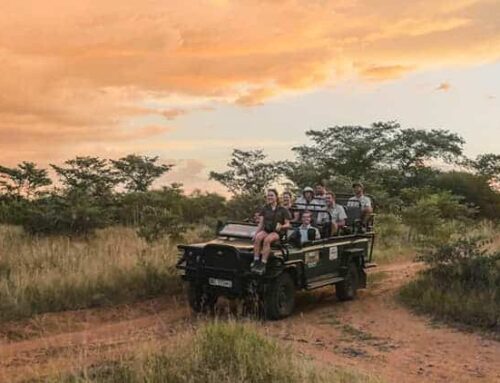
The zookeeper from Wisconsin is in her penultimate week at Limpopo Field Guiding Academy and Week 7 did not disappoint! Follow Amy’s adventures as she and the Phase 2 group enjoy Birding with Janesta and get ready for the big FGASA Practical evaluation coming up!

Week 7: Lions jolted me awake several times this week as the bone-chilling intensity of their roar vibrated my nerves and tent as they slowly made their way closer and closer to our camp. Each morning we woke up to cape turtle doves singing, saw lion tracks by our tents and headed out into the bush identifying different bird species and their calls.

Janesta, a respected instructor and author of Pathfinder accompanied us this week for birding. She didn’t just tell us what the birds were but opened our eyes to certain features that make each bird unique. This enabled me to learn over 100 birds in two days which was 95 more than I already knew. Sometimes we forget the one thing we need to do to survive which is breathe. With our FGASA exam behind us we are able to breathe a little easier but that is not to say that there isn’t more to learn.


Our breath passes through our lungs one time but when a bird exhales the oxygenated air passes through their lungs a second time enabling them to sing for long periods of time. A song from a bird is more beautiful than any sound a man can produce and their beaks are more powerful than our hands. Yet as humans we still measure animals’ skills, intelligence and strength by comparing them to our own. Nature, however, has other plans.

A fisherman learned from watching a heron that he could catch fish with other methods besides a hook and worm. A green backed heron throws insects into the water and in doing so the insect attracts fish. He repeats this process until he catches a meal.

Paleacrctic migrants use instinct and endurance to fly over seas from one continent to the next sharing the responsibility of the journey. Some, like the fork tailed drongo have even learned to mimic other birds to avoid predation or chase birds away from a food source or a potential mate. Others are even quite clever. Parasitic brooders will distract a bird in a nest to lay it’s egg avoiding having to care for it’s young. It will even push out an existing egg so the other bird doesn’t notice a new one.

Animals are amazing and way more intelligent than we give them credit for. Before arriving in Limpopo I wasn’t able to distinguish between a crow and a robin. After this week of birding I am able to identify around 150 bird species and just under 80 calls. Failing makes you stronger, practice makes you better, learning makes you wiser and the bush keeps you humble. There is a lot we can learn from a bird. Birds don’t complain about the cold, they migrate to warmer weather. If you want to go fast, go alone. If you want to go far, go together.

Stay tuned for the final installment of Amy’s blog as she completes her FGASA endorsed Apprentice Field Guide Course at LFGA. What does Week 8 hold in store for this budding young naturalist?







Leave A Comment